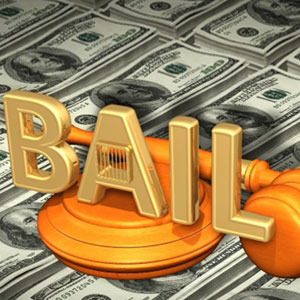 Bail And Bond
Bail And Bond
The terms bond and bail are often mistakenly used interchangeably, but it’s vital to recognize that they represent distinct concepts within the context of securing release from custody. Although these terms may seem synonymous, understanding the technical distinctions between bailable and bondable criminal offenses in Florida can prove essential in preparing yourself for various legal scenarios where this knowledge can significantly impact your case.
A bond is the total amount, typically determined by a court, that serves as surety to ensure your presence at court hearings and your compliance with court orders. Think of it as a sort of insurance. It’s essentially a pledge of money to guarantee that you’ll return to court and follow all pretrial conditions. Let’s use an example of a thousand-dollar bond for simplicity. In this case, you will typically have two options:
Posting Full Bond: You or someone you know can pay the entire bond amount upfront. If you attend all your court hearings and fulfill your legal obligations, the total bond amount is returned in its entirety. It acts as a guarantee of your commitment to the legal process.
Working With A Bail Bondsman: If you cannot afford the total bond amount, you can enlist the services of a bail bondsman. They’re licensed and bonded by the state. In exchange for a fee, typically 10% of the bond amount, the bondsman will post the entire bond and facilitate your release. In our thousand-dollar example, you’d pay a hundred dollars to the bondsman.
The 10% fee is the bondsman’s profit and compensation for assuming the risk of fronting your bond. If you fail to appear in court, the bondsman might employ bounty hunters to locate and apprehend you within a specific time frame to prevent the forfeiture of the posted bond. This highlights the bondsman’s stake in your compliance.
Bail bonds often come with specific restrictions, which commonly include:
- Attending all court hearings
- Abstaining from criminal activity
- Restriction on the possession of firearms or weapons
- Not consuming illegal drugs, narcotics, or unauthorized alcohol
- Maintaining no contact with witnesses or victims in the case
Understanding the nuances of bailable and bondable criminal offenses in Florida, as well as the role of bail bondsmen, is absolutely crucial when navigating the surrounding legal process.
Bondable Offenses
Not all charges allow for being released on bond. In cases involving very serious charges, often first-degree felonies punishable by life imprisonment, the option for bond may not be available. In these instances, prosecutors can initiate proceedings for pretrial detention. They can also present evidence during an Arthur Hearing to establish a presumption of guilt based on the strength of the evidence. Essentially, they argue that the evidence of guilt is so evident or obvious that the court can presume there is a great chance that you are guilty of committing the crime, and therefore the court is legally justified in holding the individual without bond, given the potential severity of the charges and the corresponding sentence.
There are situations where you may initially secure bond and be released, but you then subsequently violate a condition of your release — such as missing a court date, contacting a witness or victim, or being arrested for a new criminal offense — your bond could be revoked by the court. This puts you at risk of being detained in jail until your case is resolved.
It’s worth noting that legal precedent, such as the Paul Case, has established that while an initial bond might be forfeited due to non-compliance with the original bond conditions, criminal defendants retain a constitutional right to seek a new bond. A skilled attorney can leverage this case law to argue for a new bond arrangement even after a revocation of your original bond.
It’s crucial to understand that failing to adhere to the conditions set by the judge when you were released on bond puts you at risk of having your bond revoked and being held in jail. Navigating these legal intricacies requires both a clear understanding of the law and the expertise of a knowledgeable attorney.
For more information on Bailable/Bondable Criminal Offenses In FL, a free initial consultation is your next best step. Get the information and legal answers you are seeking by calling (407) 890-8472 today.
 Bail And Bond
Bail And Bond